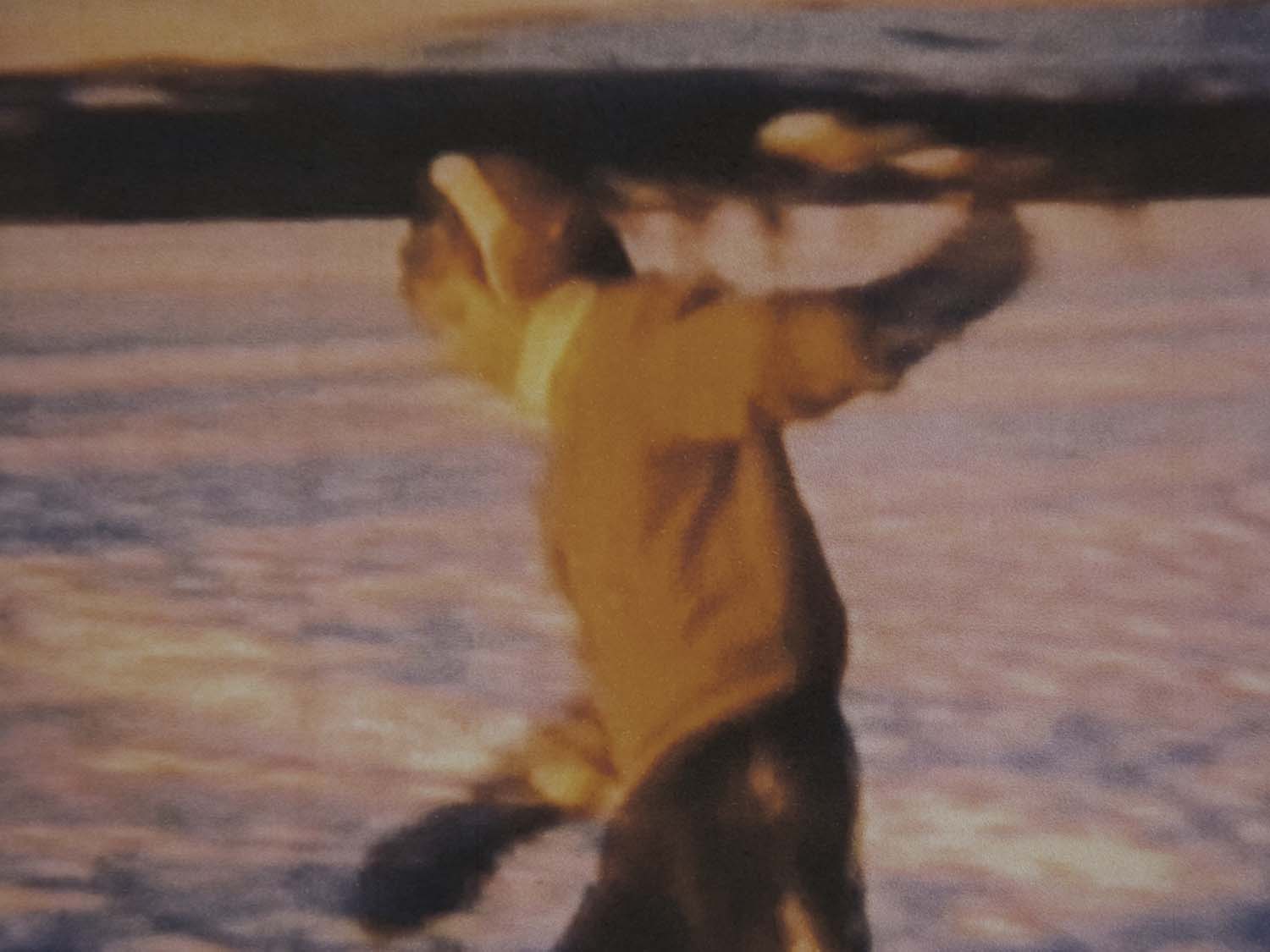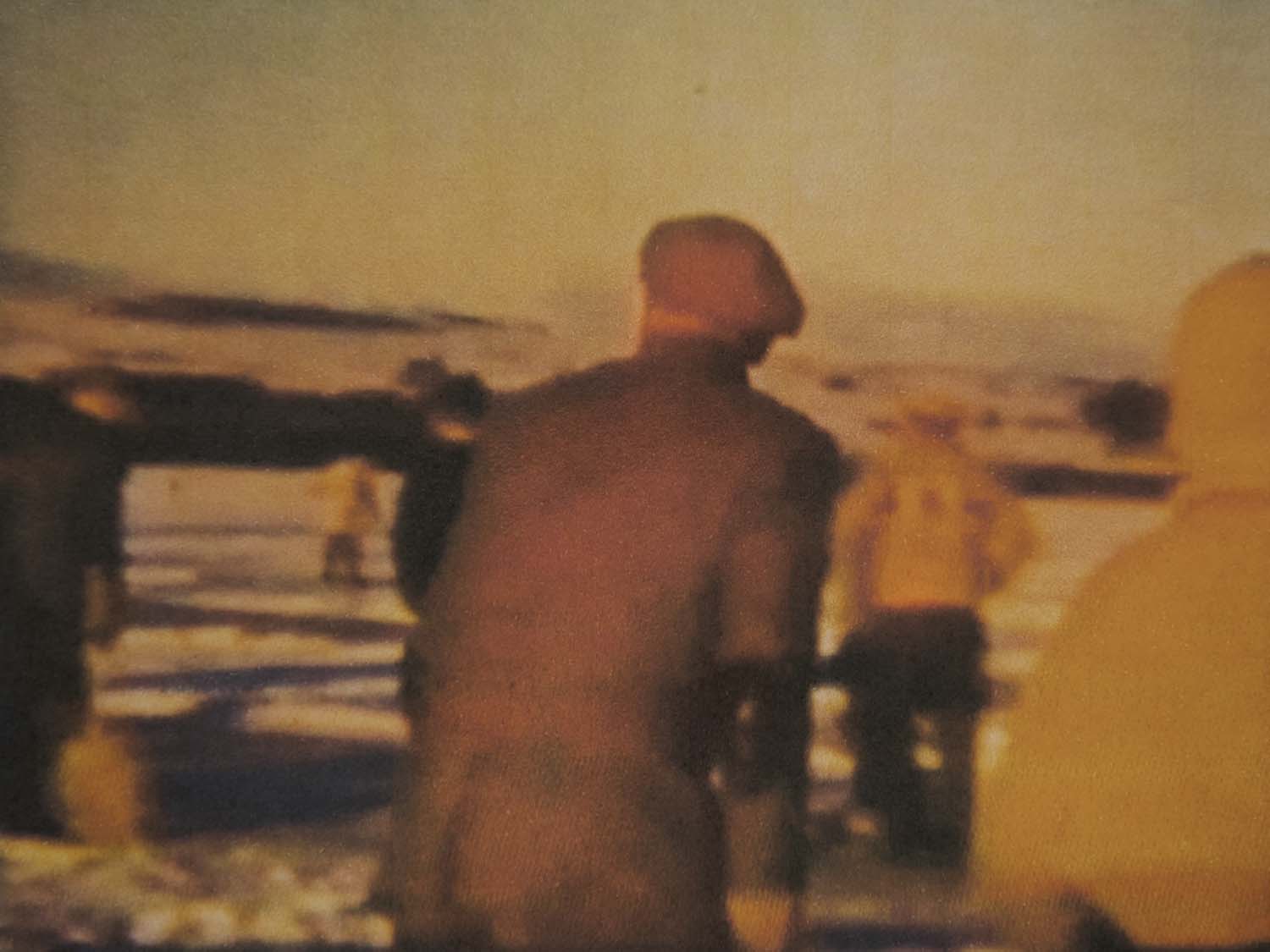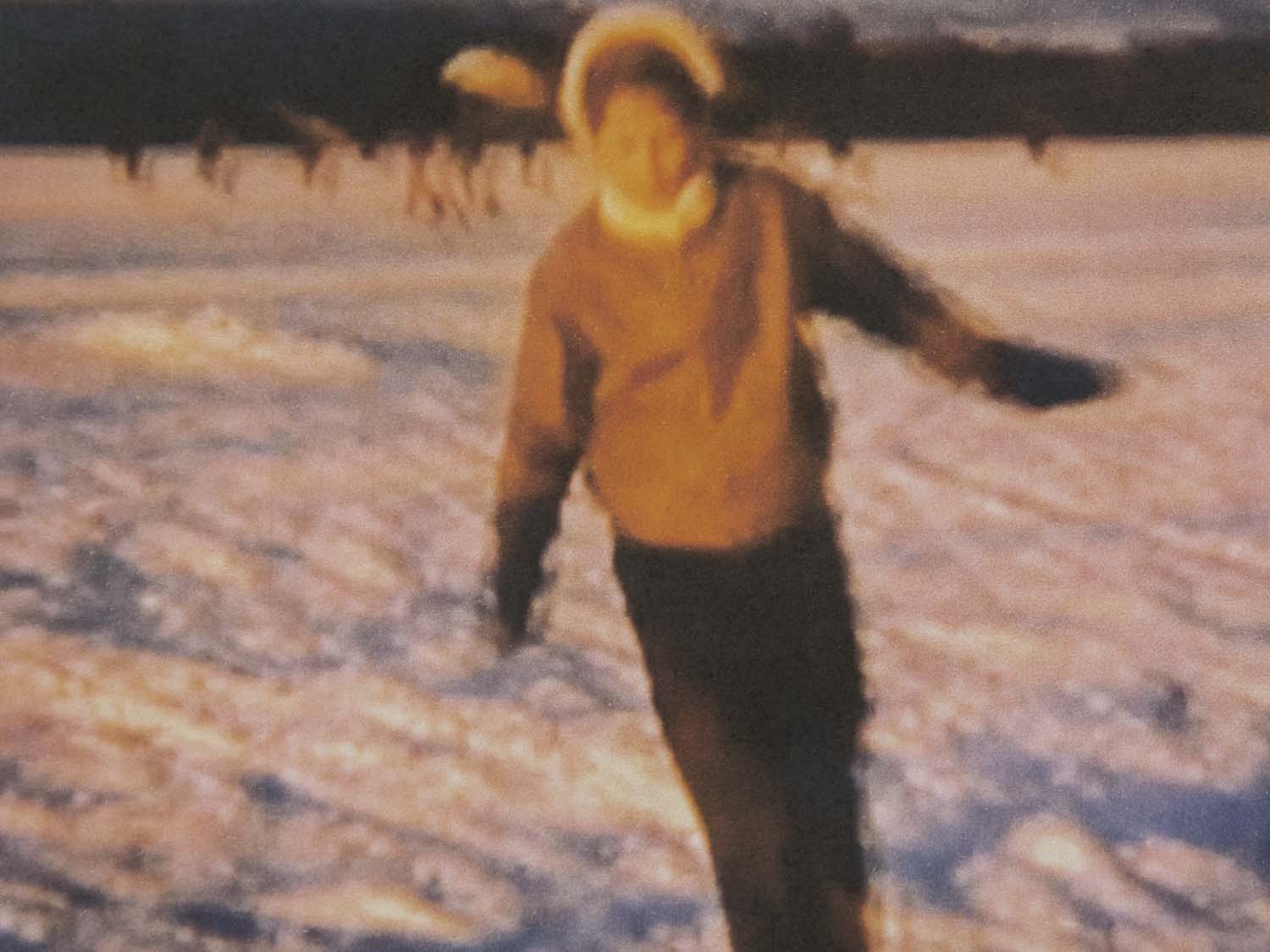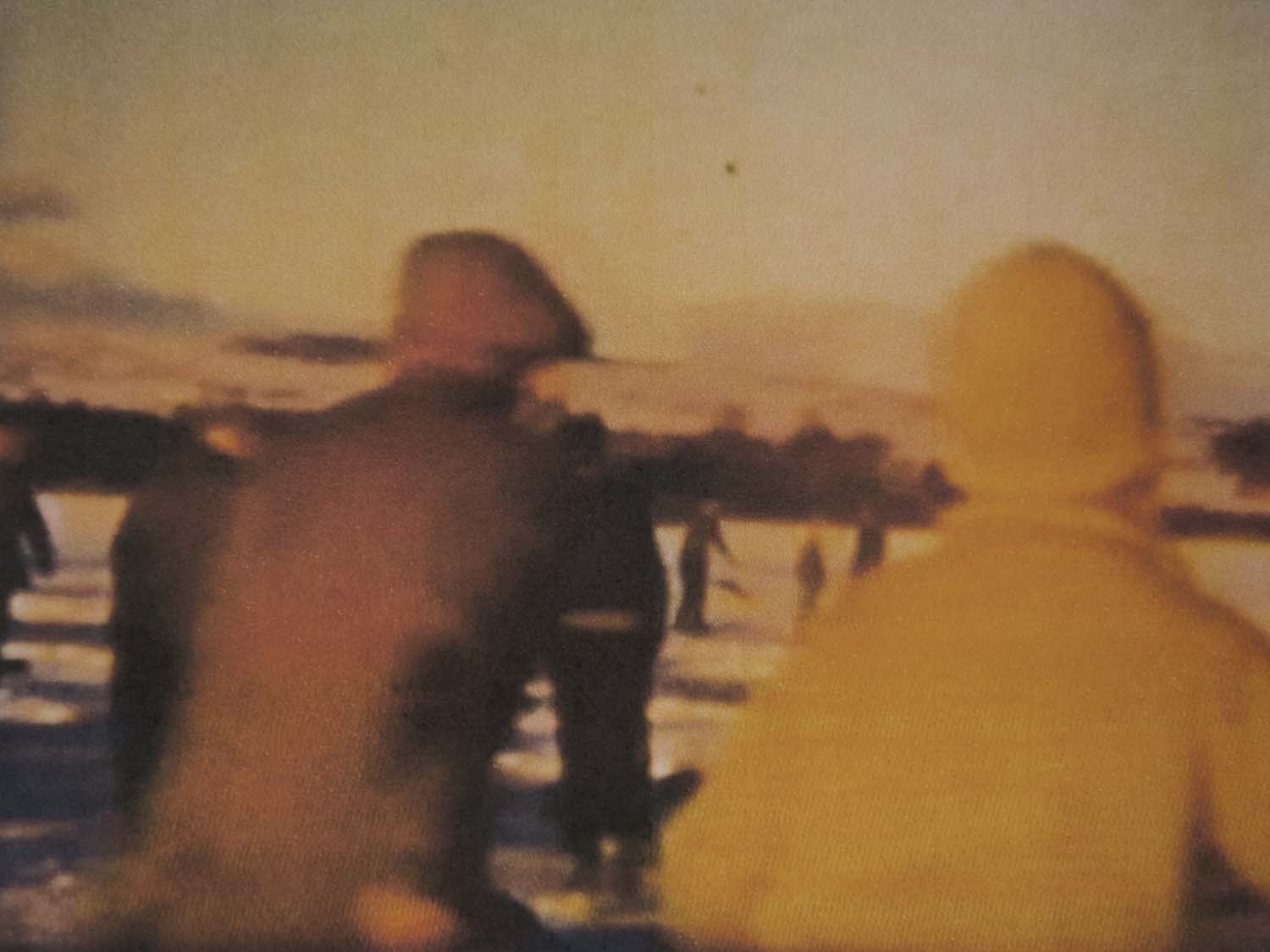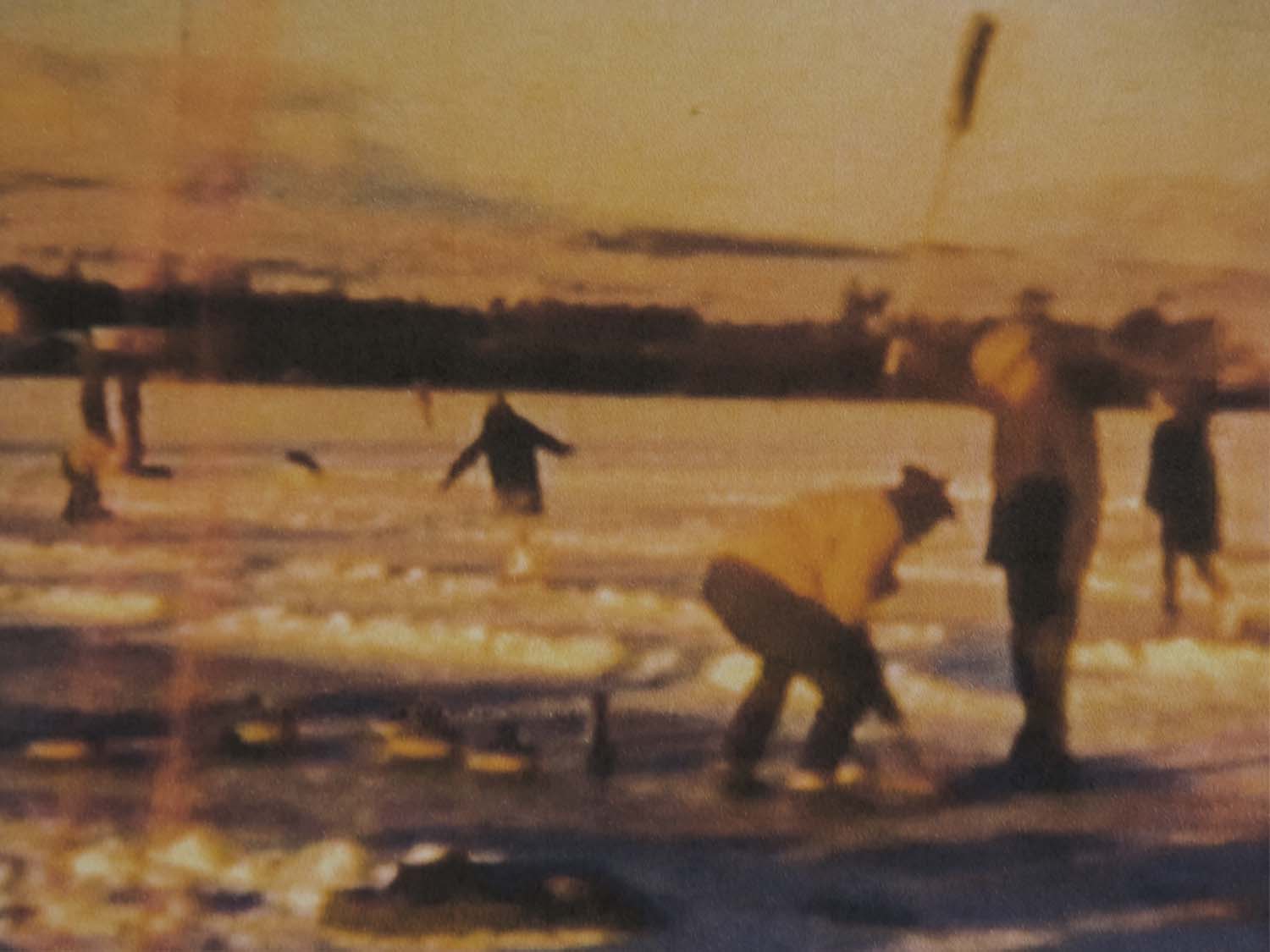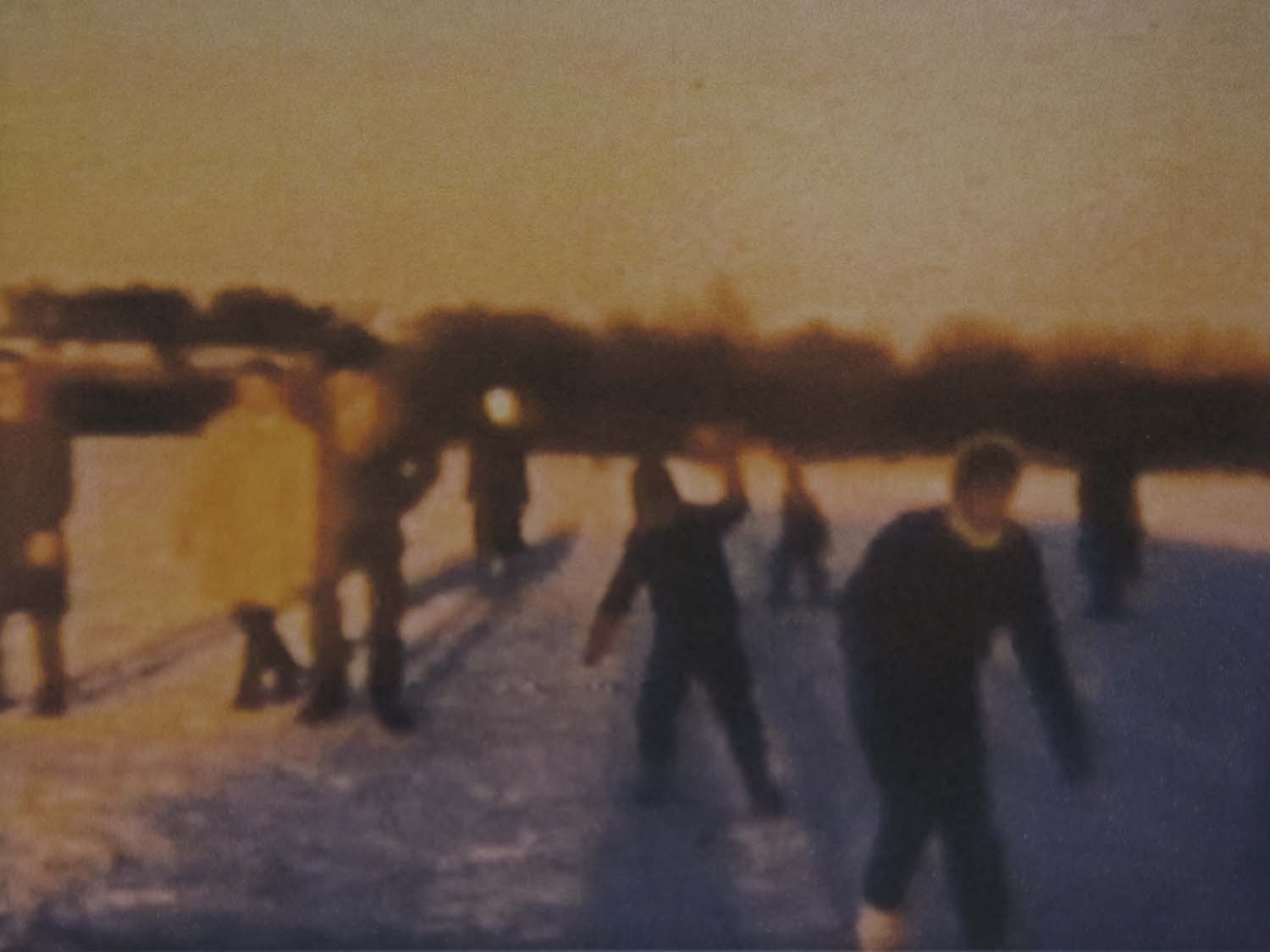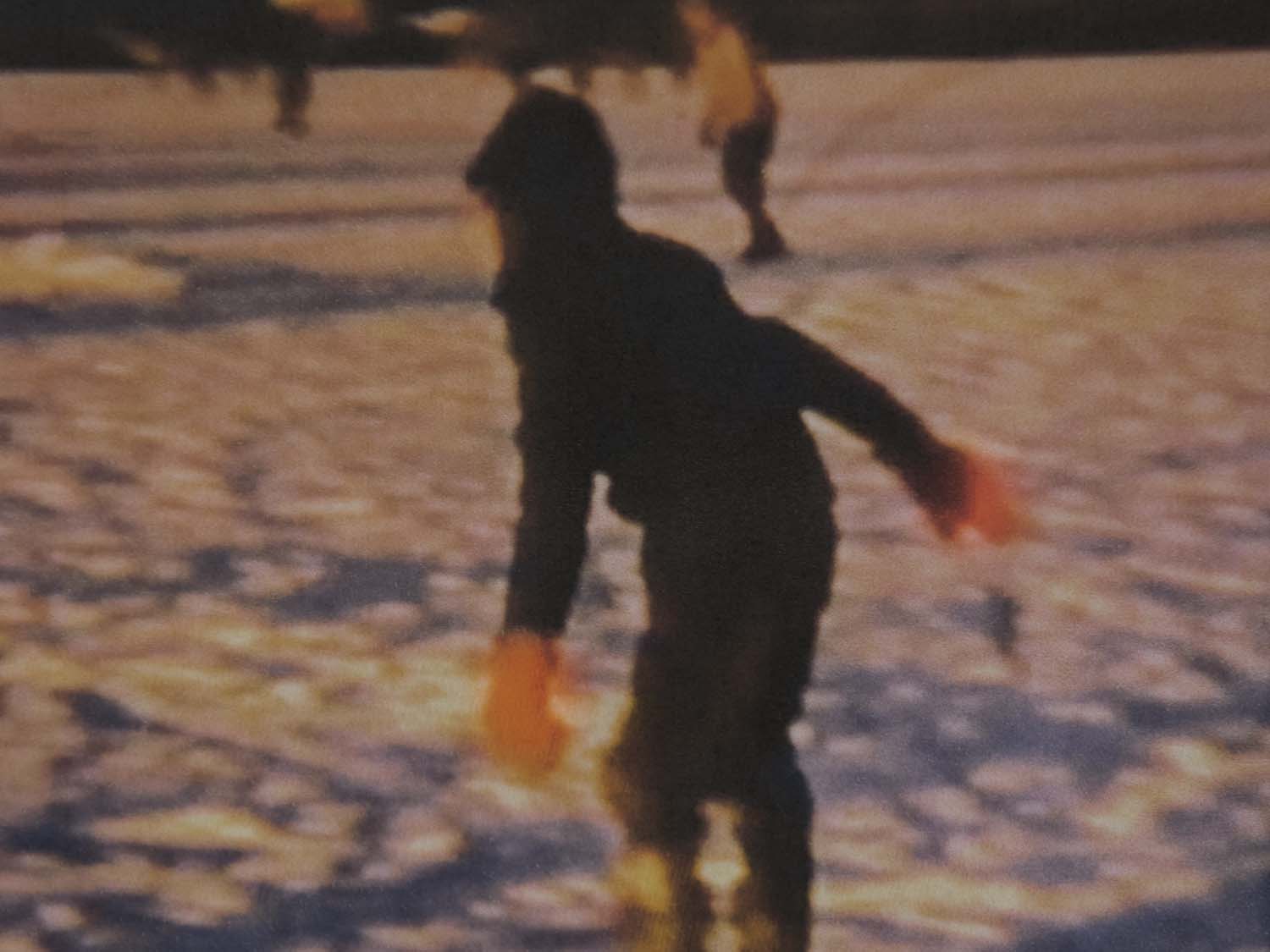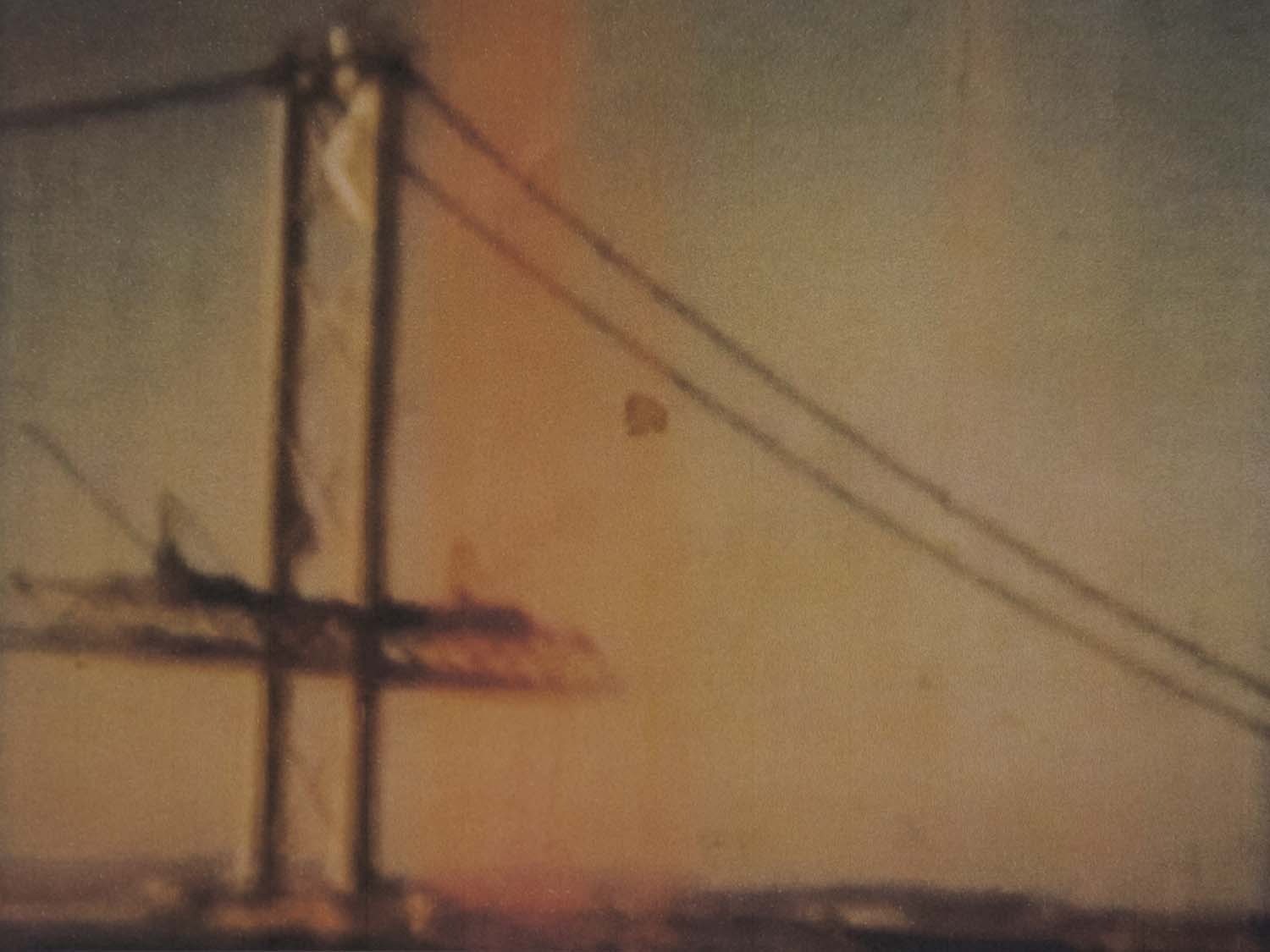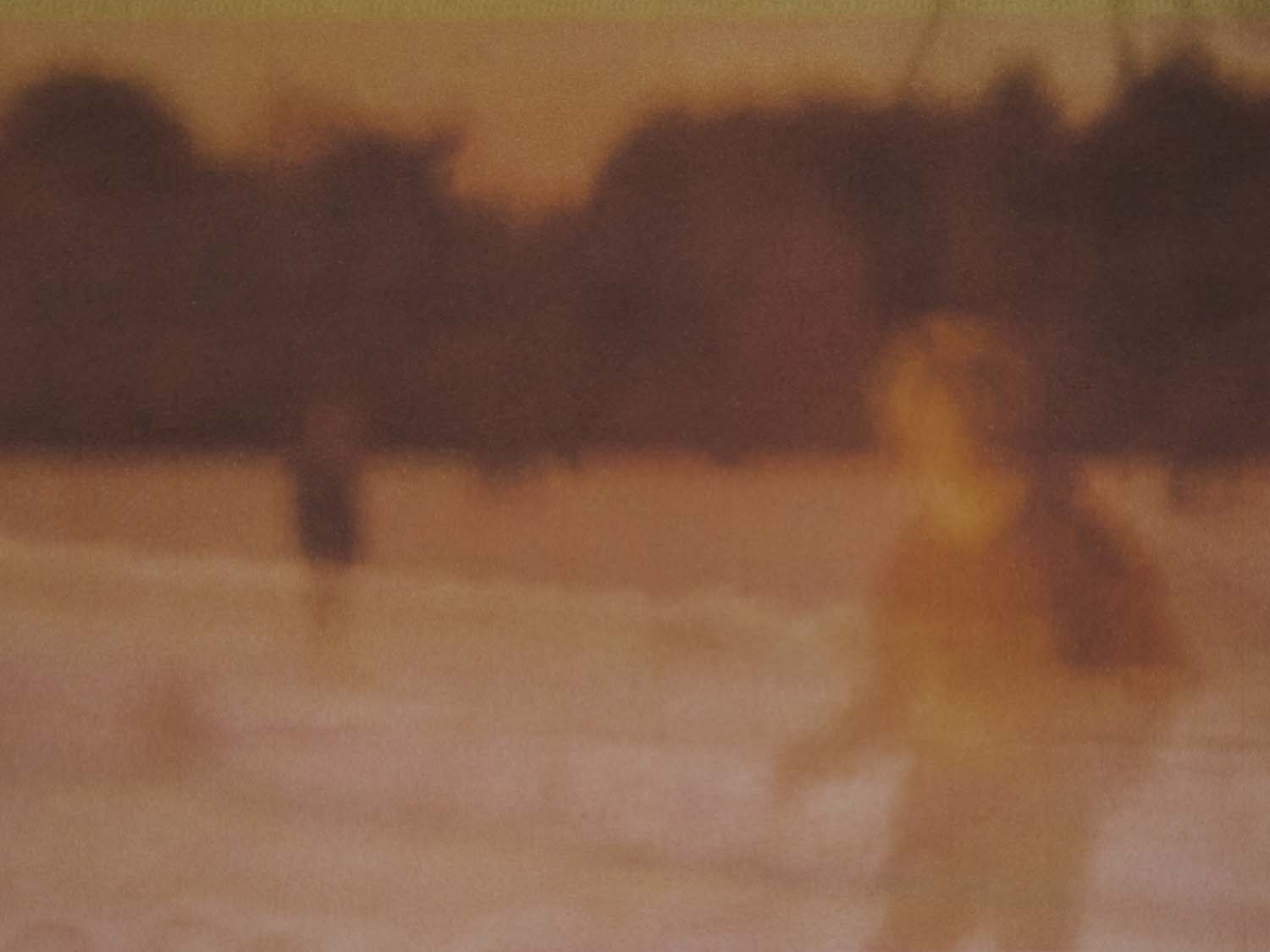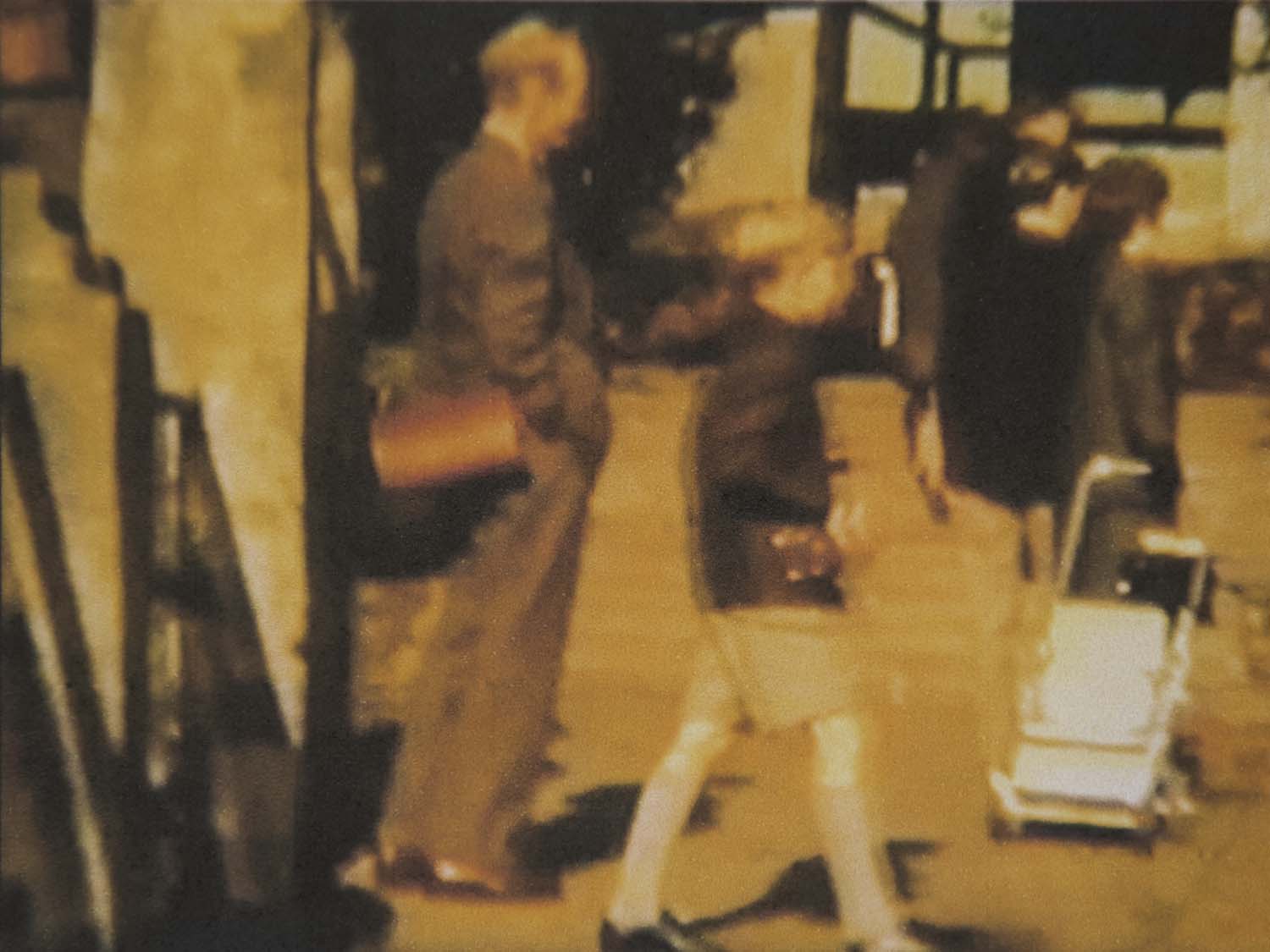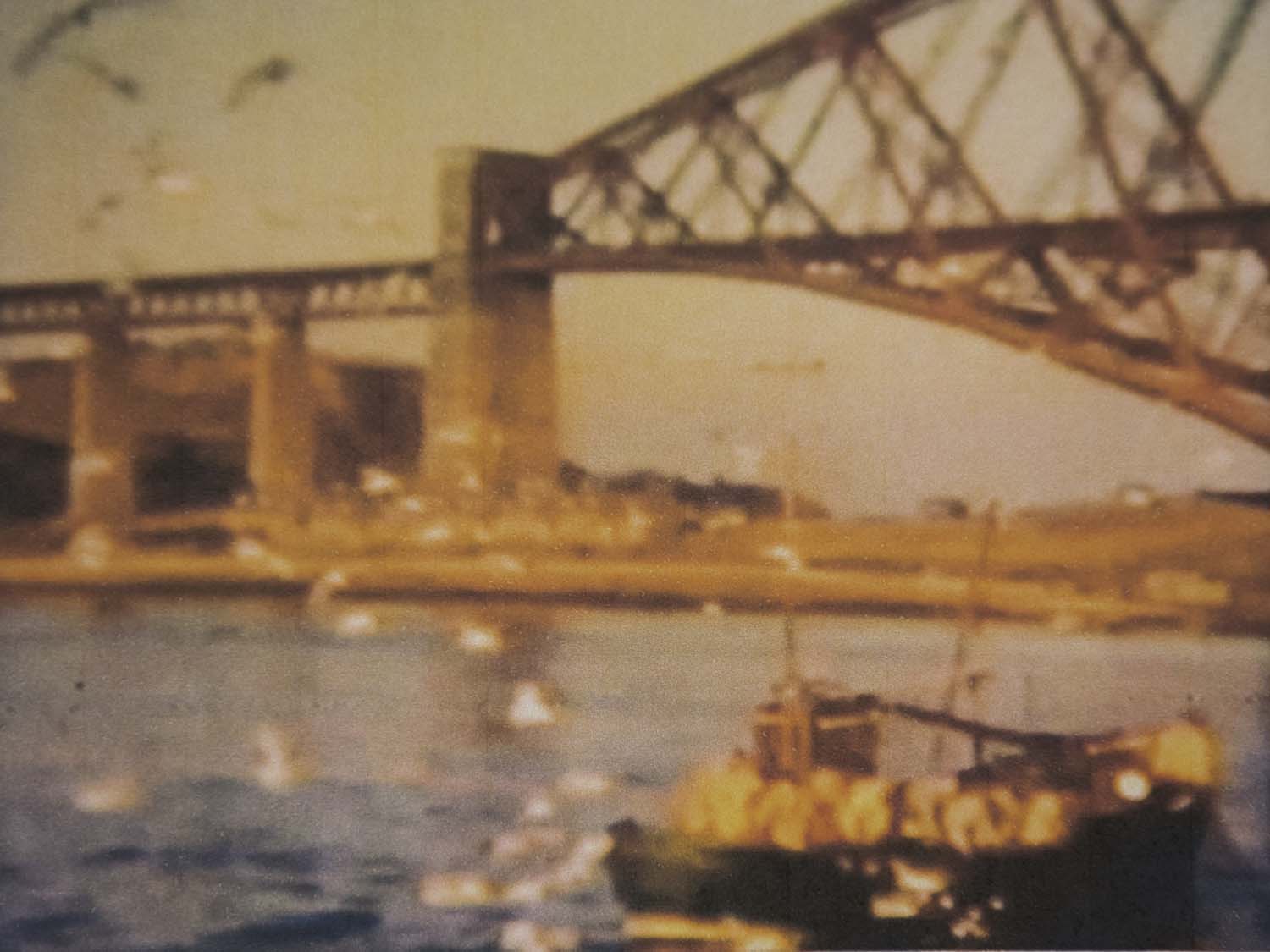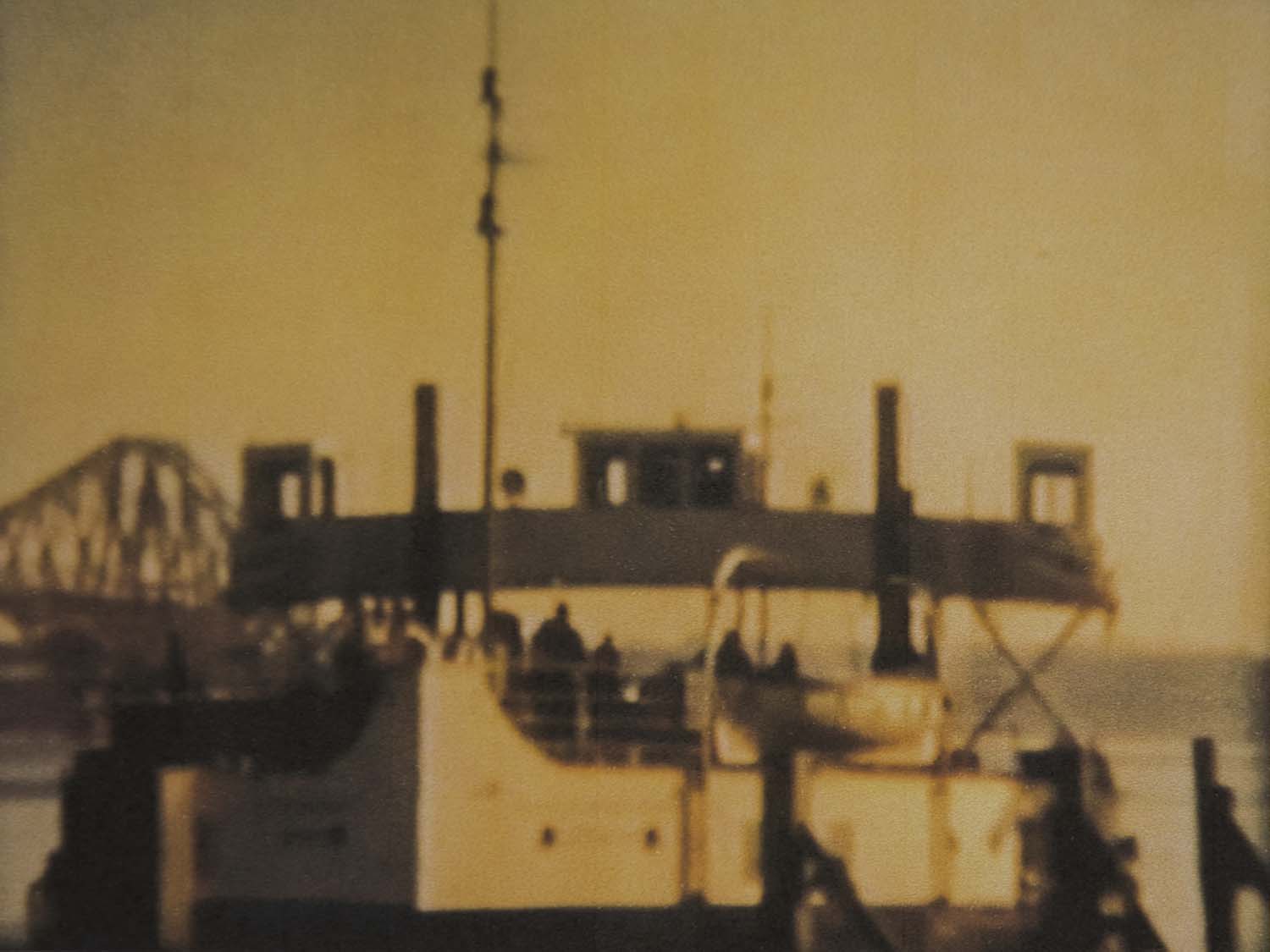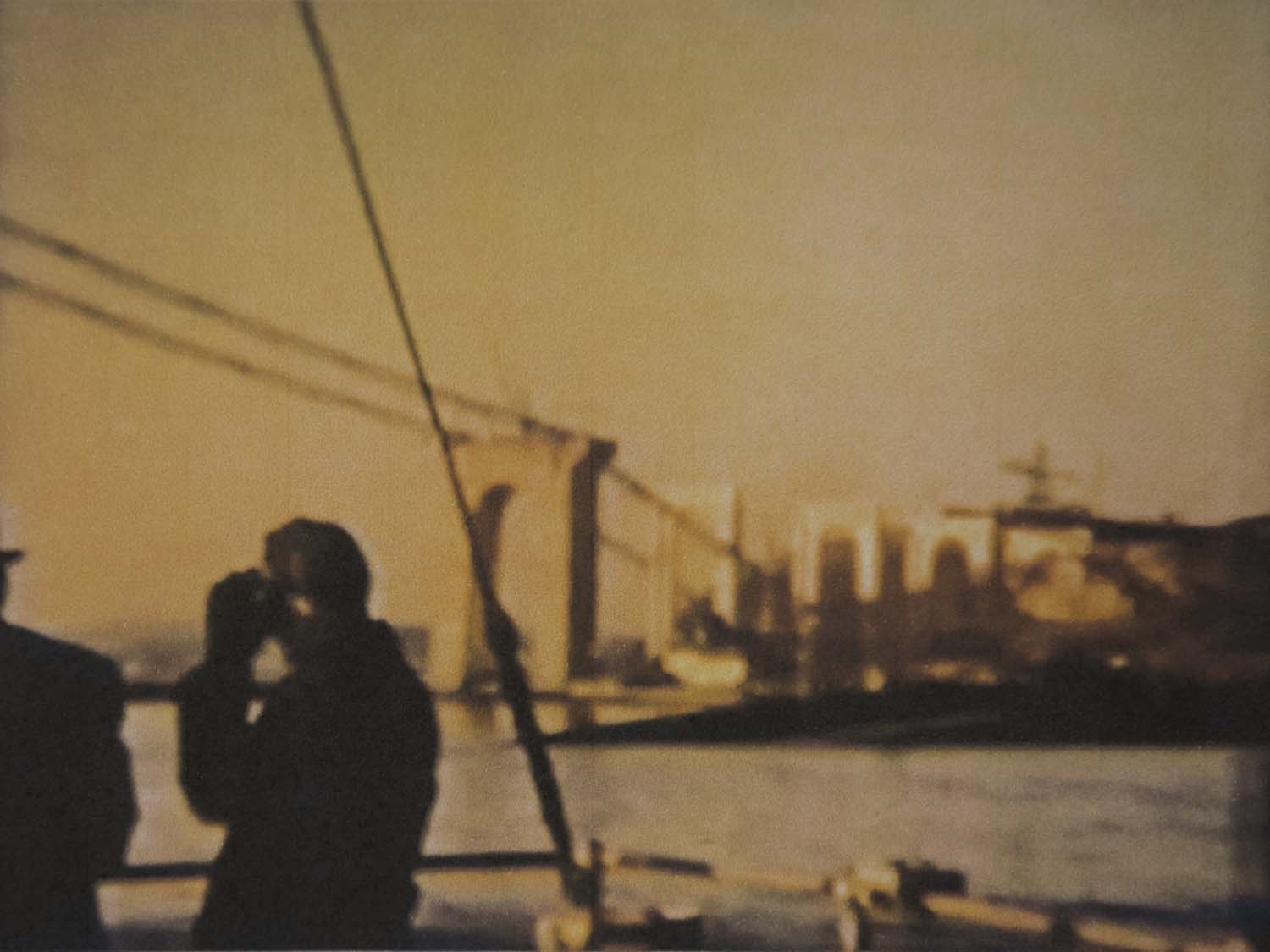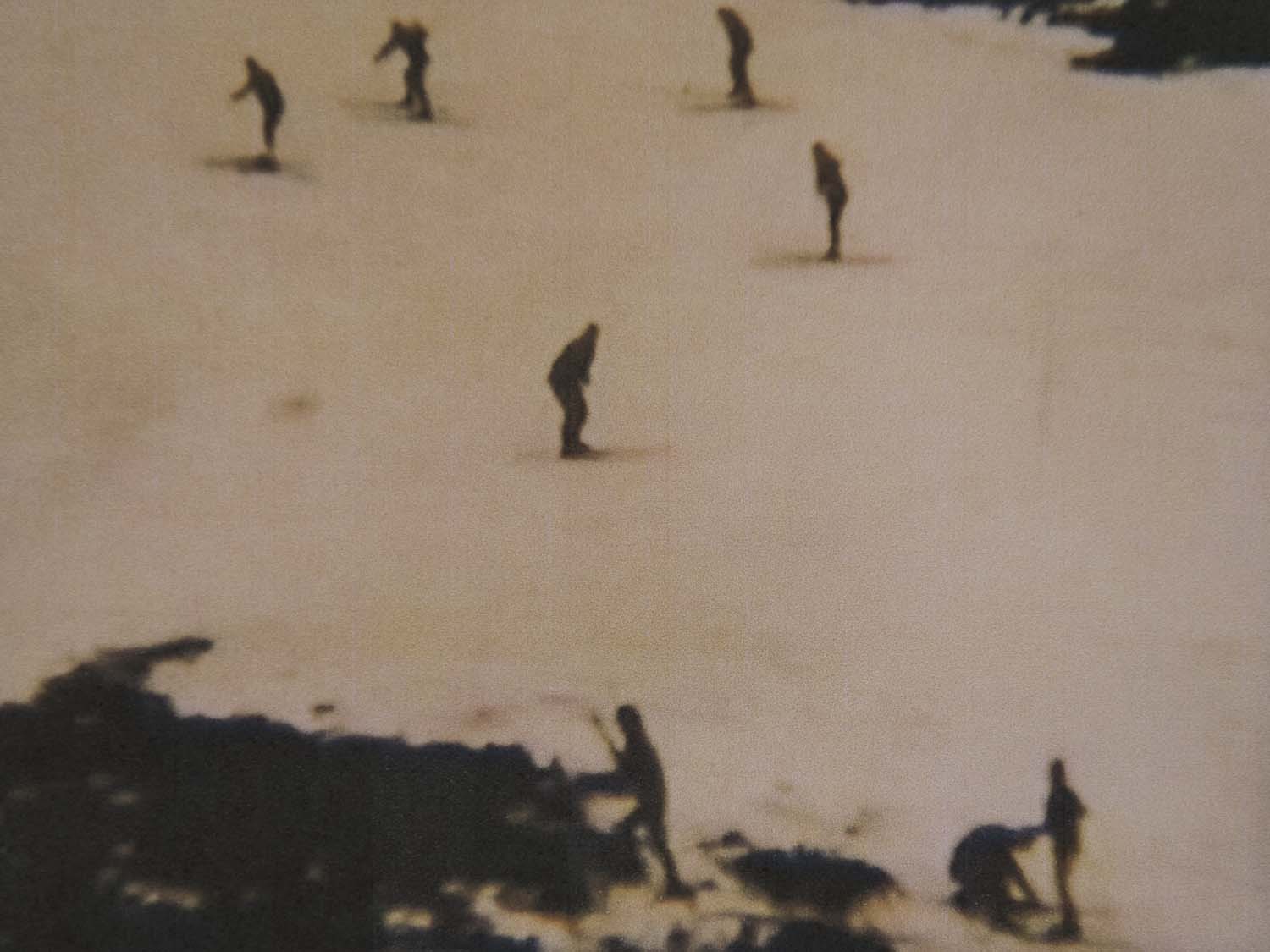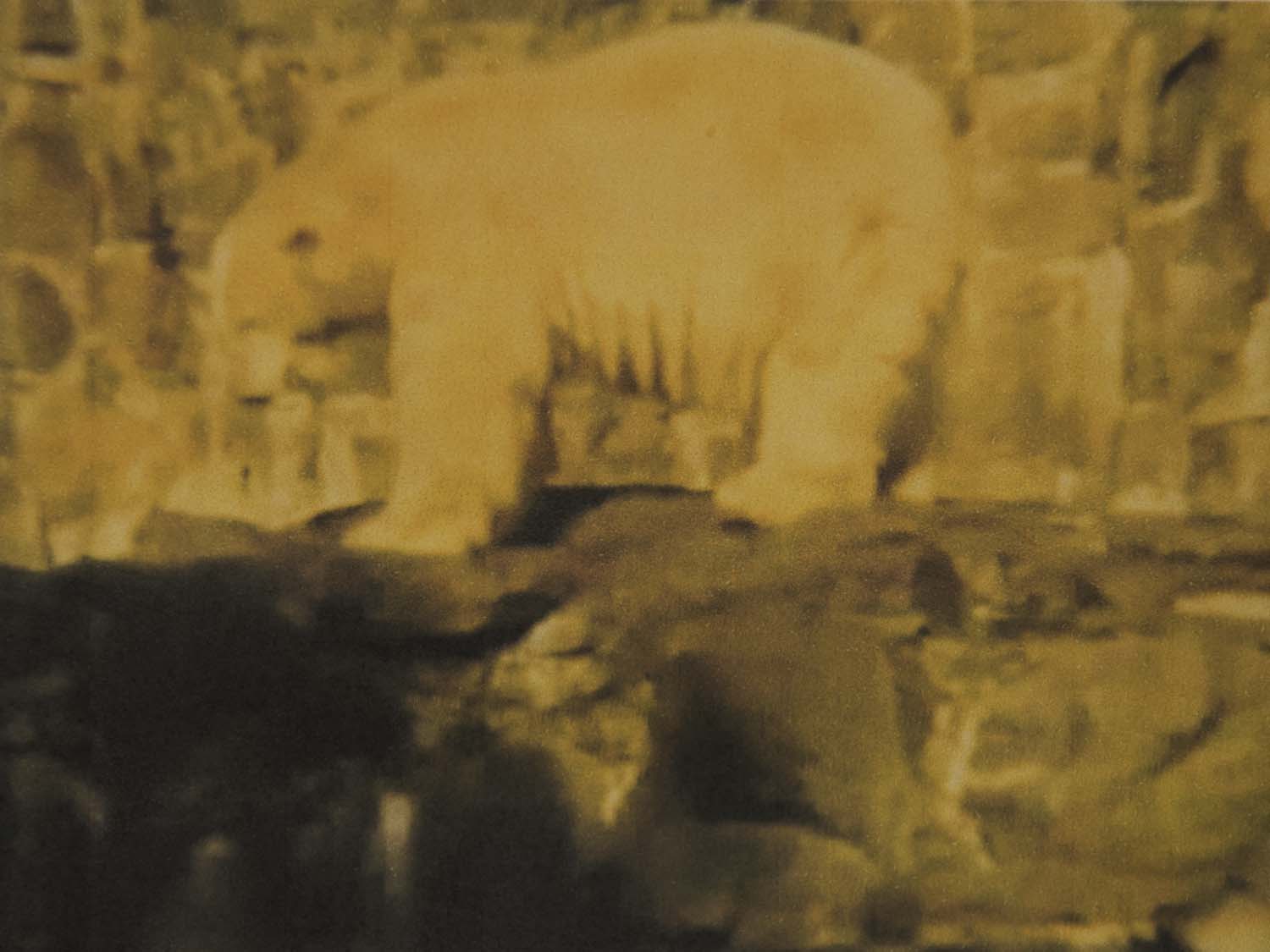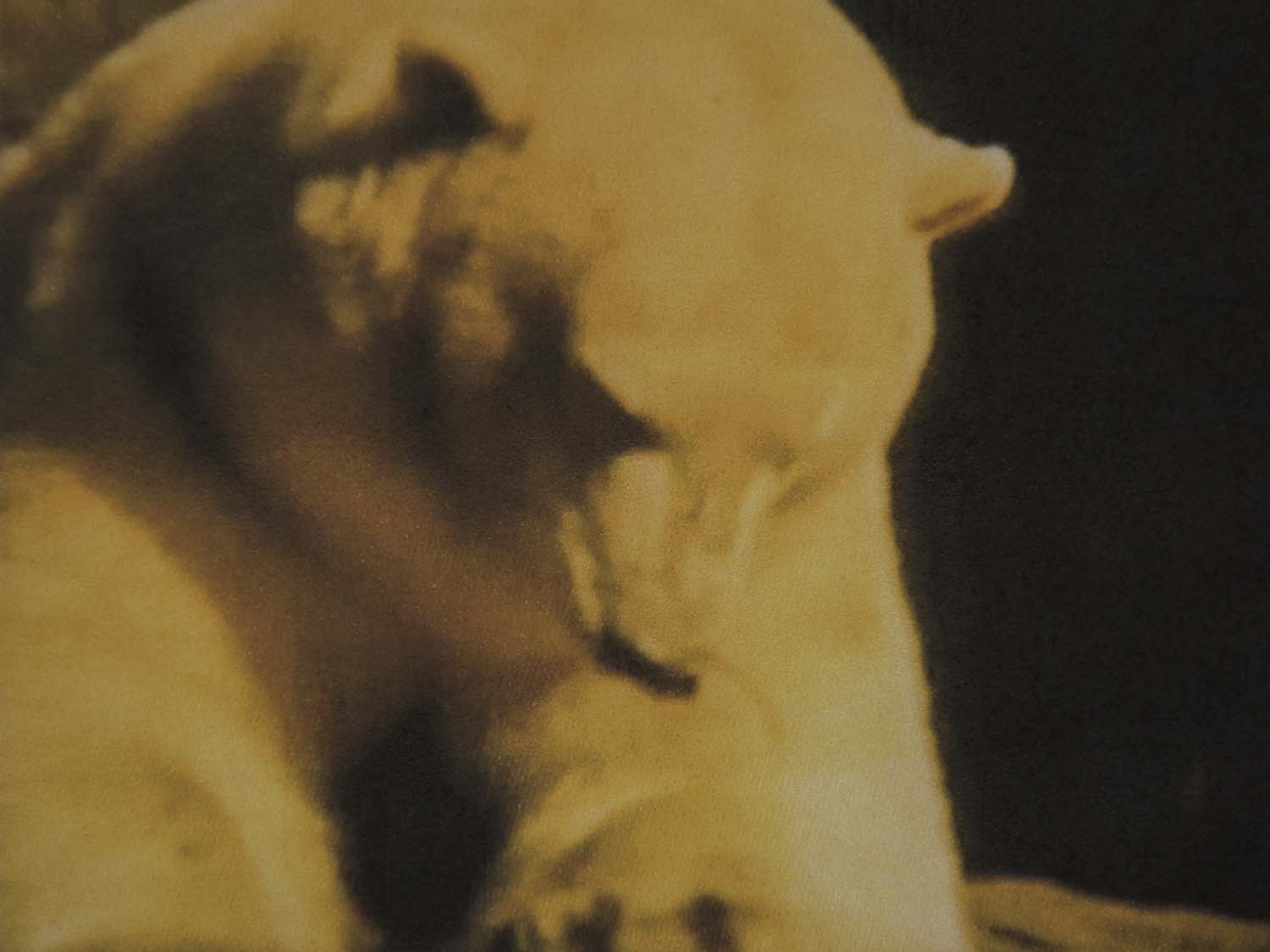At the start of this pandemic, I had three living grandparents, and now I have one. The poet Kwame Dawes writes of ‘the idea of the poem as caught in that “still point” between time present, time past, and time future’. These stills by Robbie Lawrence, rephotographed from moving pictures made by his grandmother, perform just such a still point.
Ah, the Forth bridges. When I was a first-year undergraduate in Edinburgh, I used to visit my great-aunt in Queensferry every couple of weeks for lunch or tea. We had a soft spot for each other. I once as a child read a poem at her birthday party. It was in a little restaurant where my gran sometimes worked, called the Bakehouse, so I’m assuming it had been a bakery. It had a big crevice under the stairs.
The amber light in these photographs feels like still-point light. Amber, neither stop nor go. Starting in 1962, the poet Jackson Mac Low made a long series of poems using a chart of descriptions of light over twenty-six years. The first light poem, for Iris, includes these lines: ‘Citrine light / kineographic light / the light of a Kitson lamp / kindly light’.
My great-aunt would cook lentil soup, and she made amazing pancakes, but this period also coincided with increasing disorientation and confusion which ended up being diagnosed as Alzheimer’s. She would talk about a blue light, which gave her a lot of anxiety, and us, too, because we assumed it was the gas on her hob, but the blue light sometimes came from the sink. She always asked if I had a girlfriend, and I always said ‘no’ and smiled. I stood on the stairs to read the birthday poem, which everyone greeted, of course, with kindness. It wasn’t watching my cousin play a schools final at Hampden.
I’ve never curled, not in that way anyway. The choreography of bodies on the ice feels familiar, this elegant sense of slight dexterous flail to keep balance, to stay upright. I’m reminded a little of the work of Édouard Levé, the writer and photographer who got people dressed in business attire to position themselves into tableaux of stills from rugby matches and pornographic films. The tableaux in these images are more subtle, just a protruding of the wings, an anticipatory bend in the knee.
Speaking of knees, a part of the body that’s largely lost to fashion is that small space between short and knee-length sock, that little cashew-nut curl of goose-pimpled elastic-tattooed skin. I’m trying to recall being involved in legendary snowball fights but I can’t. I mean I remember plenty of snowy days. I remember my brother shatteringly putting his arm through the window in our school canteen in a rushed effort to wipe off something someone had written about him in the condensation. I remember an ice-skating disco where I just went round and round and round. They always played the song ‘Deeply Dippy’ by Right Said Fred.
Dawes continues his characterisation of the still point:
Poetry is, indeed, a form that carries us to unknown places even when those places are known through memory. The relooking that poetry represents is thus an encounter with the unknown, and one that eventually proves to be necessary and exciting.
There’s so much glass between us and Mercedes. I think this must be Mercedes, anyway, the polar bear that lived in Edinburgh Zoo for twenty-five years, having survived being shot in Canada. Reinforced Edinburgh Zoo glass, a camcorder lens, a still camera lens and also a laptop screen. I, too, want to nuzzle my face in my paw with embarrassment, a kind of shy memory. My gran and grandad celebrated a joint eightieth birthday at Edinburgh Zoo. We walked around the zoo and then had a meal in their function suite, with a disco afterwards. Why do I always remember the discos? It was weird having a disco so close to the pandas, penguins, bantengs, lions, chimpanzees, etc. I think Mercedes had died by then, so she was spared that at least.
Dawes writes of the still point of poetry in terms of comfort, especially at times when ‘so many lives I know have been strained by what have become ordinary tragedies’. I have to be honest and say that comfort doesn’t always sit that comfortably with me. Don’t we want to shake things up with the uncomfortable, the discomforting, the curling stone under the sofa cushion, the blue light in the sink? Looking at Robbie Lawrence’s intensely intimate photographs, though, caught in an overlap of memory, imagination and invention, caught between the present, the past and the future, I feel that the momentary comfort of these images doesn’t close off the possibility of flux and change, but instead opens up pockets in the midst of them; pockets we can put our hands in and shift our weight to the balls of our feet. It’s my gran’s birthday on Saturday; I’ll spare her the poetry reading.
Colin Herd
Extract from ‘1st Light Poem: for Iris – 10 June 1962’ by Jackson Mac Low reproduced by permission from the Estate of Jackson Mac Low and Chax Press. Extract from ‘The Still Point’ by Kwame Dawes originally published on Harriet, the blog for the Poetry Foundation, reproduced by permission of Kwame Dawes. Extracts from Letter from a Place I’ve Never Been: New and Collected Poems, 1986 –2020 by Hilda Raz by permission of the University of Nebraska Press. Copyright 2021 by the Board of Regents of the University of Nebraska. Reproduced by permission of Kwame Dawes.

